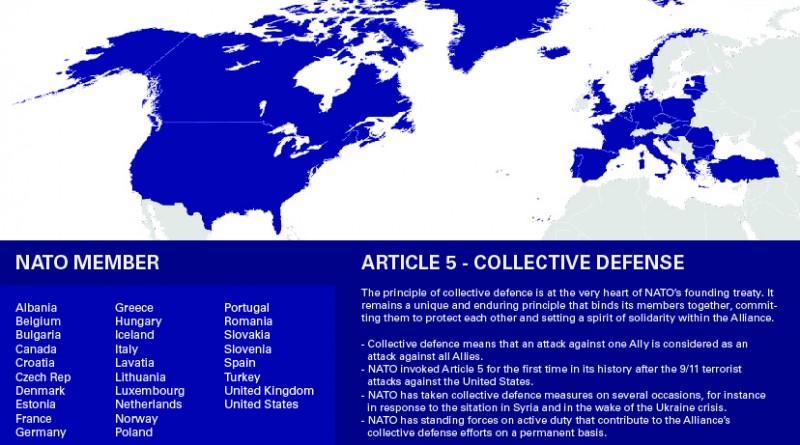Responding to ISIS: We need a ‘coalition of the terrorized’
By: Leo Schenk – Columnist, Junior
On Nov. 13, a series of terrorist attacks occurred in the French capital. The group known as the Islamic State (aka ISIS, ISIL or DAESH) claimed responsibility for the attack, its first attack of such military nature and ex¬tent in a Western nation. I have heard a great many people ex¬pressing shock and remorse, and these are understandable reactions, but I would argue them to be the incorrect ones.
This highly organized group has been publicly advertising that it will take action against West¬ern nations participating in the American-led air raids against them, and their past actions don’t indicate it’s a group that bluffs. No, the focus must now be on how to view this attack and, thus, how to respond to it, as these are unavoidably linked.
I am afraid the only correct way to view and respond to this attack is very bleak. This was a military strike made by, at best, a very organized foreign threat, and at worst, a battle-hardened foreign military force. This assessment brings about specific questions as to what the appropriate response should be. And for that, one needs only to look to the North Atlantic Treaty, which created NATO.
In Article 5, it declared, “The Parties agree that an armed at¬tack against one or more of them in Europe or North America shall be considered an attack against them all.” As this was an organized military operation in Paris, it would fall under that article—especially since the only other use of Article 5 followed the 9/11 attacks. NATO would be right, and almost expect-ed, to make a unified response against this clear military threat to every member of the alliance.
As I hope many of you have already heard, the attacks in Paris were not an isolated event for the terrorist group. A bomb brought down a Russian passenger jet in Egypt, with ISIS claiming responsibility and with Russia, according to The Guardian, calling it a terrorist attack. Russia has since doubled its airstrikes on the group in Syria. In addition, CNN reported two of the latest brutal executions by ISIS: a Chinese citizen and a Norwegian citizen. Because of this series of events, I would like to put my thoughts on the table to achieve an effective response from the United States and NATO in combating this threat.
In 2003, the United States referred to the military coalition for the second Iraq war as a “coalition of the willing.” I would like to propose a “coalition of the terrorized.”
First, France or another NATO member would have to call for the attacks on Paris to be considered an Article 5 offense. Next, using the obvious threat to regional powers and the assaults on the other great powers of Russia and China as points of convincing, establish a worldwide United Nations Security Council coalition.
Russia is already actively involved in the region, so making it a joint military operation would only make both sides more effective. China is still in a military isolationist state-of-mind; however, they would certainly be malleable to providing intelligence and economic backing.
This plan may not require American boots on the ground, but it may require soldiers from all members of the alliance. The world is at war and must be made aware of it before this pseudo-state becomes stronger. I envision a kind of international “Marshall Plan” as was seen after WWII: building infrastructure and political security through re¬wards. The West has already tried to take the easy path and leave this region to fend for itself. It has failed miserably in the face of massive numbers of war-hardened extremists. NATO and this coalition need to crush ISIS— militarily and aggressively. That being said, the same mistakes of the last great coalition in the Middle East cannot be made again, as this will merely lead to more lives lost on reruns of the same wars.
The region needs to be stabilized. Not via a violent military occupation that breeds contempt for the occupiers, but through economic and humanitarian aid. With the removal of ISIS, there is still a massive area experiencing a power vacuum with almost no government, and all potential geopolitical arrangements must be considered after the group has been removed. Regardless of the shape these political institutions take, safety must be secured for these populations, so they can lead better lives.
Graphic by Art Director Kelsey Mills.

